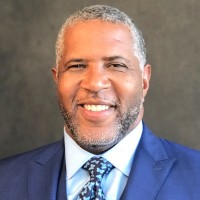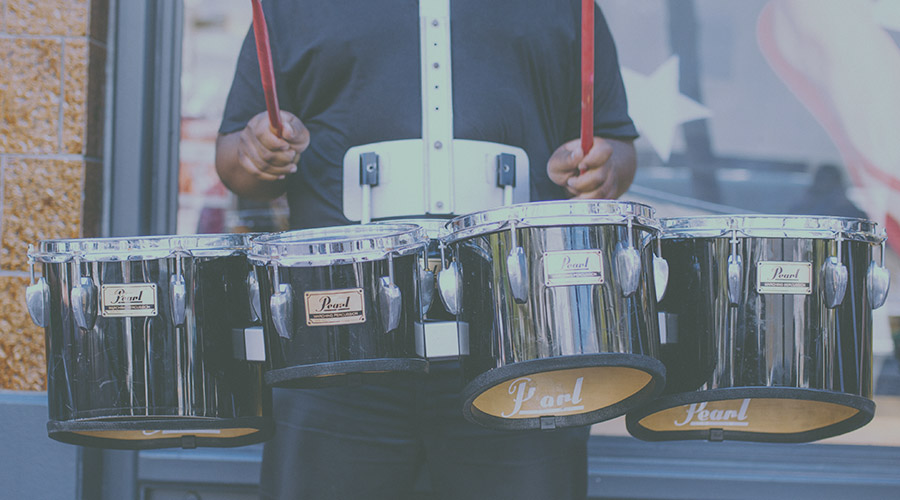Key Takeaways:
- HBCU marching bands are rooted in tradition and are known for delivering dazzling performances with impressive uniforms, dance routines and musical numbers.
- The first HBCU marching bands started forming in the early 1870s.
- There are many HBCU marching bands in the U.S., including Jackson State University’s Sonic Boom of the South, Florida A&M University’s Marching 100 and Norfolk State University’s Spartan Legion.
Historically Black College and University (HBCU) marching band routines are the epitome of a captivating performance. HBCU marching bands are unmatched in their energy, precision and showmanship. Deeply rooted in tradition, these bands deliver dazzling performances and halftime shows with impressive dance routines, music and uniforms. However, HBCU marching bands are more than groups of outstanding performers. They are cultural ambassadors for their schools and communities.
Ahead, we will explore the rich history of HBCU marching bands. We will also spotlight the top 10 HBCU bands, discuss their importance and more.
The History of HBCU Marching Bands
HBCU marching bands have been distinct and beloved components of the HBCU musical tradition since the late 19th century. As early as the 1870s, HBCUs, including Fisk University and Hampton University, had chorus groups and bands. At first, these bands raised money and provided music for campus events, such as religious services and military drills. By the 20th century, HBCU marching bands started combining military band styles with popular music inspired by traveling circus bands.
Eventually, HBCU bands evolved. Under the leadership of jazz legend Nathaniel Adderley, the Florida Agricultural and Mechanical University (FAMU) band began performing at community events. The evolution of HBCU marching bands accelerated after World War II, when former FAMU band director, Dr. William P. Foster, combined popular music and choreography. Foster’s idea influenced the style of other HBCU marching bands and helped set the foundation for modern HBCU marching band routines.
Today, HBCU marching bands are an integral part of the culture and musical life of HBCU campuses. These bands serve as training grounds for future music professionals and educators and help shape the landscape of music education across the U.S.
The Top Ten HBCU Bands in the U.S.
HBCU marching bands have built a rich legacy of musical excellence and showmanship over decades of performances. From exciting halftime performances to captivating battle-of-the-band competitions, HBCU marching bands rally audiences across the U.S. every year.
Although all HBCU marching bands bring feelings of Black pride and joy to their communities, some reign supreme. Below, we explore some of the 10 best HBCU marching bands performing in the U.S. today.
1. Jackson State University’s Sonic Boom of the South
Jackson State University, located in Jackson, Mississippi, has a renowned band program. Its crown jewel is the Sonic Boom of the South, or “Sonic Boom.” Sonic Boom is known for its electrifying performances. Over the years, the band has performed at halftime shows for well-known football teams, including the Atlanta Falcons and Detroit Lions. Sonic Boom also was honored to perform at the 34th NAACP Image Awards and Motown’s 30th Anniversary special
2. Florida A&M University’s (FAMU) Marching 100
Based in Tallahassee, FL, the Marching 100 is the iconic marching band of FAMU. With a history spanning more than a century, the Marching 100 has become synonymous with excellence and innovation in marching band culture. Over the years, the band has performed at a variety of important events, including a fashion show, NFL Super Bowl games, the Olympics and presidential inaugurations.
3. Howard University’s Showtime Marching Band
Howard University is one of the U.S.’s oldest and most well-known HBCUs. Founded in 1867 in Washington, D.C., it currently has 13 schools and a spectacular marching band. Howard University’s Showtime Marching Band is a powerhouse in the world of collegiate marching bands. With a rich legacy of excellence and artistry, the school has performed for a variety of notable events. Among its most important performances is the band’s 2021 escort of Vice President Kamala Harris, a Howard alumnus.
4. North Carolina A&T State University’s Blue & Gold Marching Machine
The North Carolina A&T State University band, the Blue & Gold Marching Machine, has a reputation for excellence that started over 100 years ago in 1918. At its inception, the band started with 50 musicians and has expanded to more than 200 members. Over the last few decades, the band has become a force to be reckoned with. It has performed in events, such as Macy’s Thanksgiving Day Parade in New York City, and was featured as a “top 10 band” by Sports Illustrated.
5. Southern University’s Human Jukebox Marching Band
Southern University’s Human Jukebox Marching band, located in Baton Rouge, LA, is legendary. Since the band was established in 1947 by band director T. Leroy Davis, the Human Jukebox has pushed the boundaries of musical excellence. However, the band was not always known as the Human Jukebox. In fact, the band did not earn this name until 1969, more than two decades after its establishment.
The band earned the name “Human Jukebox” under the direction of director Dr. Issac Greggs because the band was able to perform the top 40 hits of the day during that time. Since then, the band has performed at Super Bowls, Rose Bowl Parades and Presidential inaugurations. It has also enjoyed collaborations with artists and community activists.
6. Tennessee State University’s Aristocrat of Bands
In 1946, a legacy of musical and showmanship excellence was born at Tennessee State University when the school’s Aristocrat of Bands first performed. Commonly referred to as “AOB,” the band has become known for playing a blend of musical styles, including jazz, classical, contemporary and pop. Throughout the years, the band has played at a number of important events for the White House, the Los Angeles Lakers, the 2021 Presidential Inauguration and the Rose Parade.
7. Prairie View A&M University’s Marching Storm
The Prairie View A&M University Marching Storm, located in Prairie View, TX, is known for its high-energy, dynamic performances. The band has been uplifting audiences for more than 80 years. The band has had several names, including the “Sounds of Success” and the “Funky 50.” However, a group of band students changed the name to “The Marching Storm” in 1989 to give the program a new image. In recent years, the band has been selected to perform at the Formula 1, Macy’s Thanksgiving Day Parade and the Honda Battle of the Bands eight times.
8. Bethune-Cookman University’s Marching Wildcats
Bethune-Cookman University’s Marching Wildcats has a rich musical history that dates back to 1930. At its inception, the Wildcats had just 30 members. Today, the band has more than 200 members, a flag corp and dancers. Also known as “The PRIDE,” the band strives to impress audiences with their dance routines and powerful musical numbers. However, their ultimate mission is to encourage a lifelong love of music in the students and teach them leadership and other critical skills.
9. Alabama State’s Mighty Marching Hornets
One of the most well-known HBCU marching bands, the Alabama State Mighty Marching Hornets, is located in Montgomery, AL. In the last few decades, the band has developed a reputation for impressive drill formations and powerful musical performances. The 200-member band has performed at countless events, including NFL halftime shows and the Rose Bowl Parade. The Hornets have also appeared in several TV shows and movies, such as Beyonce’s 2019 special Homecoming.
10. Norfolk State University’s Spartan Legion
Established in 1975, The Norfolk State University Spartan “Legion” Marching Band has become the pinnacle of excellence in the world of collegiate marching bands. Located in Norfolk, VA, the band has more than 250 musicians, dancers and flag performers. In recent years, the band has performed at singer Pharrell Williams’s Mighty Dream event, the Rose Bowl Parade and the Mercedes-Benz Stadium for the Battle of the Bands.


Get Industry leading insights from Robert F. Smith directly in your LinkedIn feed.
Get Industry leading insights from Robert F. Smith directly in your LinkedIn feed.
Why Are Marching Bands Important to HBCUs?
Marching bands are important to HBCUs because they help preserve and showcase Black American music traditions and culture through entertainment. Through their performances, band members highlight the joys of Black excellence and fight against stereotypes about the Black community and HBCUs.
On campus, HBCU marching bands provide joy for the students and members of the bands. Students may also be enticed to attend certain schools based solely on their marching band. During football games, often more students are in their seats at halftime to watch the performances than in any other part of the game.
HBCU Marching Band Events
There are a variety of events that HBCU marching bands perform at besides football games. HBCU homecoming is another critical event for marching bands. During this week-long celebration, the marching bands are featured during the halftime show and the school parade.
Another big event for HBCU marching bands is the Battle of the Bands. These are face-offs between bands where they perform across the entire field, showcasing their technical skills.
Some of the most popular events that HBCU marching bands participate in include the Honda Battle of the Bands or rival battles, like the Florida Classic.
Final Thoughts
HBCU marching bands showcase musical talent and Black history through striking performances. They perform at many notable events nationwide, bringing high-quality entertainment and representing their schools. On campus, students are drawn to their performances and take pride in their marching band. Those in the bands gain invaluable learning experience from their directors and through their experiences performing.
Learn more about HBCU marching bands and other important topics by following entrepreneur and philanthropist Robert F. Smith on LinkedIn.






